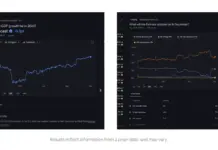
Google has announced updates to its Gambling and Games advertising policy, which will take effect on 14 April 2025.
The tech giant has released a provisional version of the new rules. Notably, it includes a formal definition of ‘gambling,’ which was omitted in the old policy. From April, Google will define gambling as “both gambling as defined by law under the regulatory framework in the country you are targeting with ads, and to anything that functions in the following way: Staking something of value on the outcome of events or processes determined by an element of chance with the opportunity to win something of value.”
This amendment targets advertisers who previously claimed that games were not gambling due to legal technicalities and other loopholes.
Additional restrictions are proposed regarding what types of gambling-promoting content are acceptable through Google. The new policy splits into supported and unsupported. Aggregator or affiliate sites that provide information about or compare other gambling services are supported.
However, a site offering online gambling-promoting content must not itself offer gambling services nor provide links to any entity that it owns.
Country-Specific Restrictions and Regional Bans
The new Google policy also has specific gambling restrictions on a country and regional basis. Firstly, the promotion of real-money Mahjong gambling in APAC will be prohibited. The rules read: “Google doesn’t allow the promotion of Mahjong involving the exchange of money in the Asia-Pacific region.”
Previously, Google had not mentioned any country-specific restrictions for promoting offline gambling. The new rules will prohibit any promotion of offline gambling in various countries. The countries listed are: Bulgaria, China, Estonia, Egypt, Hong Kong, India, Indonesia, Italy, Korea, Lithuania, Malaysia, Morocco, Northern Ireland, Philippines, Singapore, Taiwan, Thailand, Turkey, Ukraine, United Arab Emirates, and Vietnam. Generally speaking, this aligns with local restrictions.
Google has provided further information about skill-based games and clarifies between them, and requires any games that require local licensing to apply for certification with the company too. In addition, advertisers will now be required to proactively update Google if their gambling license status changes. Failure to do so could result in “immediate ad suspension.”
Soon after a Washington State court ordered the social casino company High 5 Games to pay $25 million in damages, the genre will face many additional requirements on Google.
First, Google’s new rules plan to ban affiliates and aggregators for social casino games outright. It reads: “Promotion of content which itself directly promotes engagement in social casino games, such as aggregators or affiliates, is not allowed.”
It adds: “We take violations of this category very seriously and consider them egregious. If we find violations of this Social casino games policy, we will suspend your Google Ads accounts upon detection and without prior warning, and you will not be allowed to advertise with us again.”
The law firm responsible for the plaintiffs in the High 5 Games case is bringing cases against ‘Big Tech,’ claiming they play the role of bookmakers for social casinos through processing payments and taking a significant commission.
Todd Logan, partner at Edelson PC, commented: “Big Tech isn’t just standing by — they’re cashing in. This verdict is a milestone, but it’s only the beginning. Some of our clients lost hundreds of thousands of dollars to their gambling addictions here, and Big Tech cannot be allowed to continue to profit off of these devastating addictions. We will continue fighting to ensure Big Tech answers for its role in enabling and profiting from illegal gambling.”










